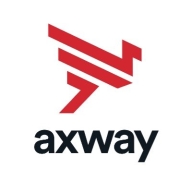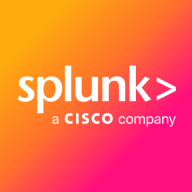

Splunk Enterprise Security and Axway Sentinel compete in security analytics and monitoring. Splunk leads with its data analytics prowess, extensive integrations, and scalability, while Axway excels in business interaction monitoring and compliance management, providing focused features for specialized environments.
Features: Splunk Enterprise Security offers comprehensive analytics, real-time monitoring, and flexible alert systems, integrating seamlessly across platforms for enhanced adaptability. Axway Sentinel stands out with features focused on monitoring business transactions and ensuring compliance, catering to industries demanding robust compliance and transactional insights.
Ease of Deployment and Customer Service: Axway Sentinel benefits from straightforward deployment and targeted customer service support. Splunk's deployment, albeit more complex due to its extensive capabilities, is aided by strong technical documentation and community resources, assisting users in navigating setup challenges effectively.
Pricing and ROI: Splunk Enterprise Security presents a significant initial setup cost, offset by a high return on investment attributed to its powerful analytics and scalability. Axway Sentinel offers a more cost-effective setup, appealing to businesses prioritizing focused compliance monitoring. Splunk's ROI is justified by its comprehensive capabilities, whereas Axway balances cost-effectiveness with its niche strengths.
| Product | Market Share (%) |
|---|---|
| Splunk Enterprise Security | 15.4% |
| Axway Sentinel | 1.6% |
| Other | 83.0% |
| Company Size | Count |
|---|---|
| Small Business | 109 |
| Midsize Enterprise | 50 |
| Large Enterprise | 264 |
Axway Sentinel delivers the real-time visibility that enables IT managers to manage SLAs, ensure regulatory compliance and avoid losses and penalties that can run into the hundreds of millions of dollars.
Sentinel is event-driven, and has the ability to correlate events from both Axway and third-party applications and systems. Sentinel enables you to easily create intuitive dashboards that can be displayed as a web page or on a mobile device, giving your business managers and IT staff clear visibility into all data flows — including file transfers, B2B transactions, web services and APIs — in one central location.
Splunk Enterprise Security delivers powerful log management, rapid searches, and intuitive dashboards, enhancing real-time analytics and security measures. Its advanced machine learning and wide system compatibility streamline threat detection and incident response across diverse IT environments.
Splunk Enterprise Security stands out in security operations with robust features like comprehensive threat intelligence and seamless data integration. Its real-time analytics and customizable queries enable proactive threat analysis and efficient incident response. Integration with multiple third-party feeds allows detailed threat correlation and streamlined data visualization. Users find the intuitive UI and broad compatibility support efficient threat detection while reducing false positives. Despite its strengths, areas such as visualization capabilities and integration processes with cloud environments need enhancement. Users face a high learning curve, and improvements in automation, AI, documentation, and training are desired to maximize its potential.
What Are the Key Features of Splunk Enterprise Security?In specific industries like finance and healthcare, Splunk Enterprise Security is instrumental for log aggregation, SIEM functionalities, and compliance monitoring. Companies leverage its capabilities for proactive threat analysis and response, ensuring comprehensive security monitoring and integration with various tools for heightened operational intelligence.
We monitor all IT Operations Analytics reviews to prevent fraudulent reviews and keep review quality high. We do not post reviews by company employees or direct competitors. We validate each review for authenticity via cross-reference with LinkedIn, and personal follow-up with the reviewer when necessary.